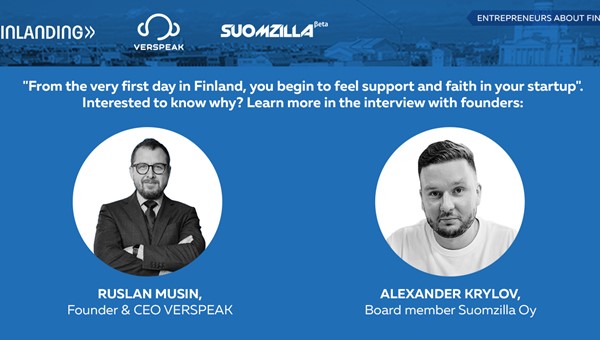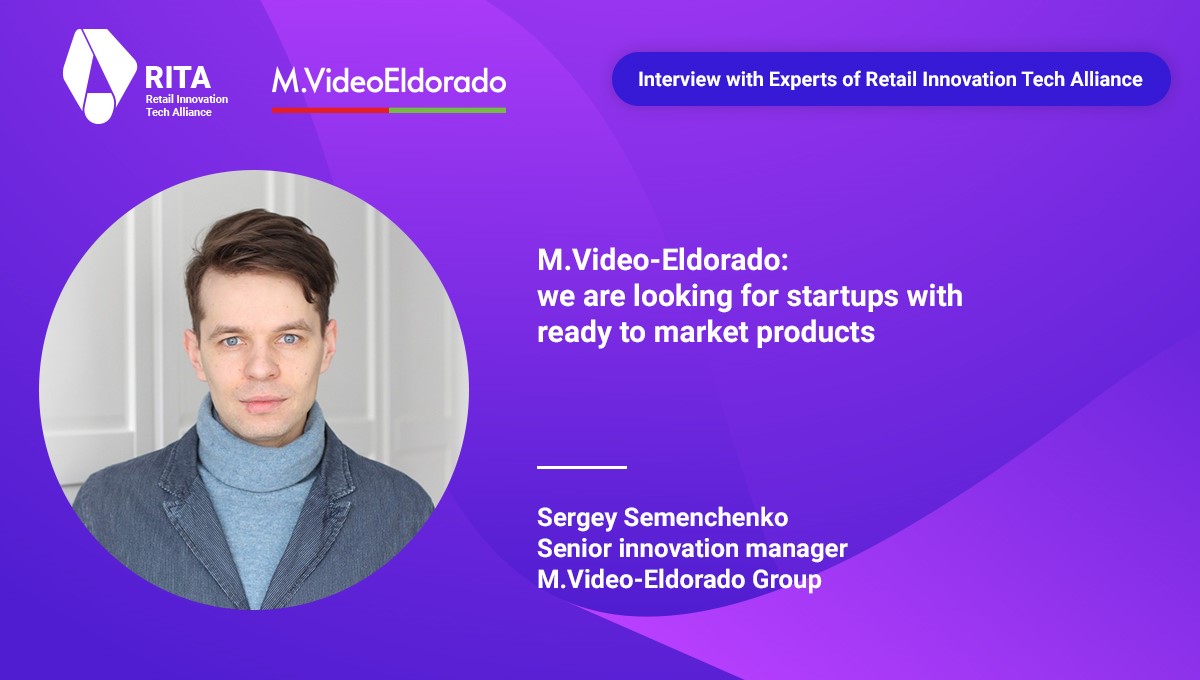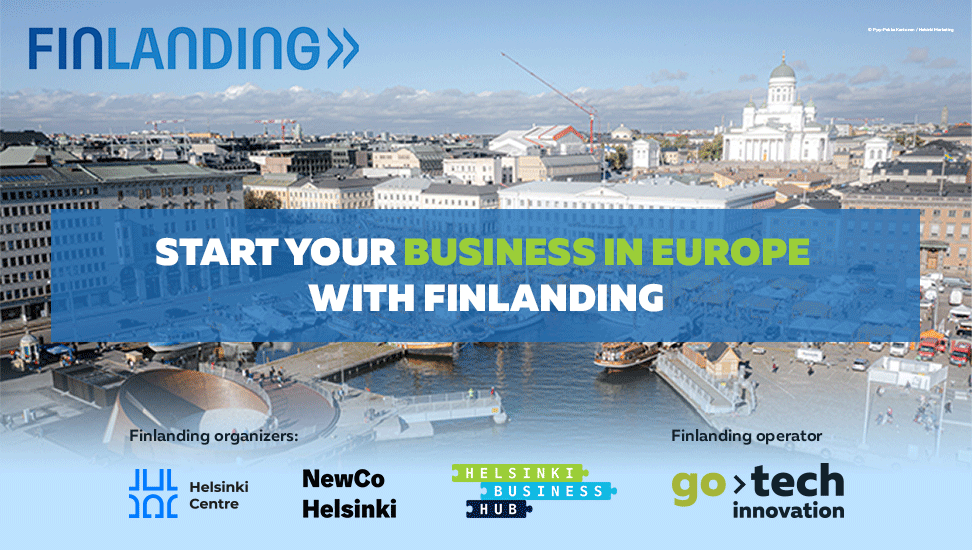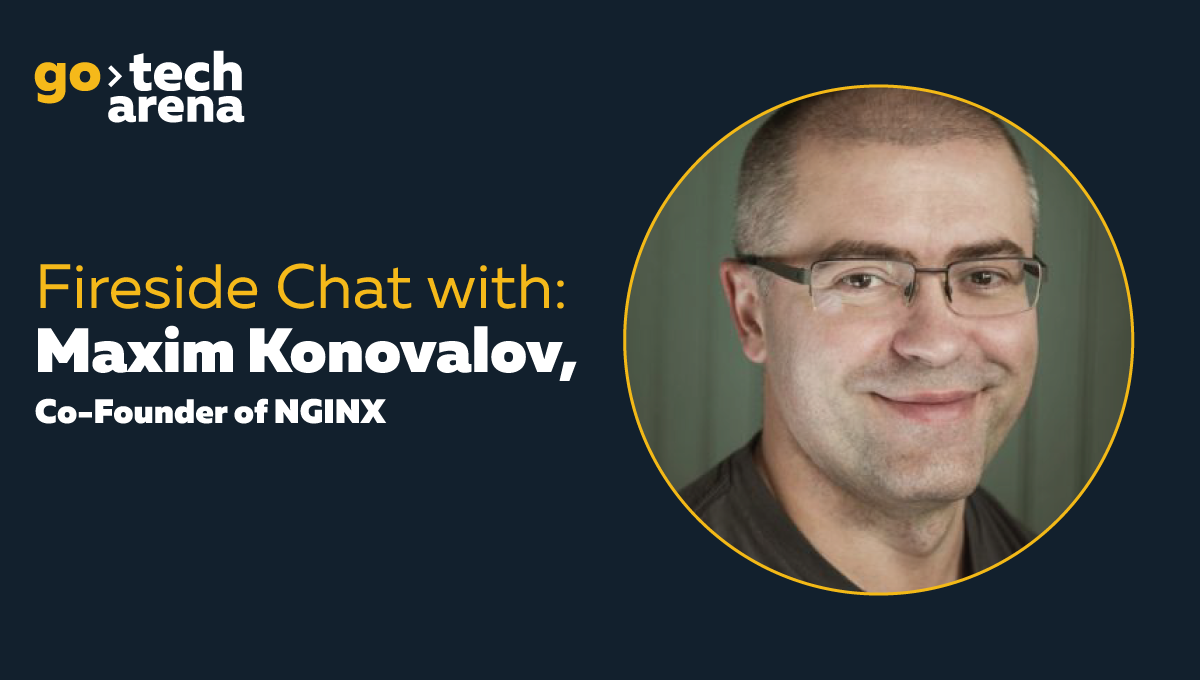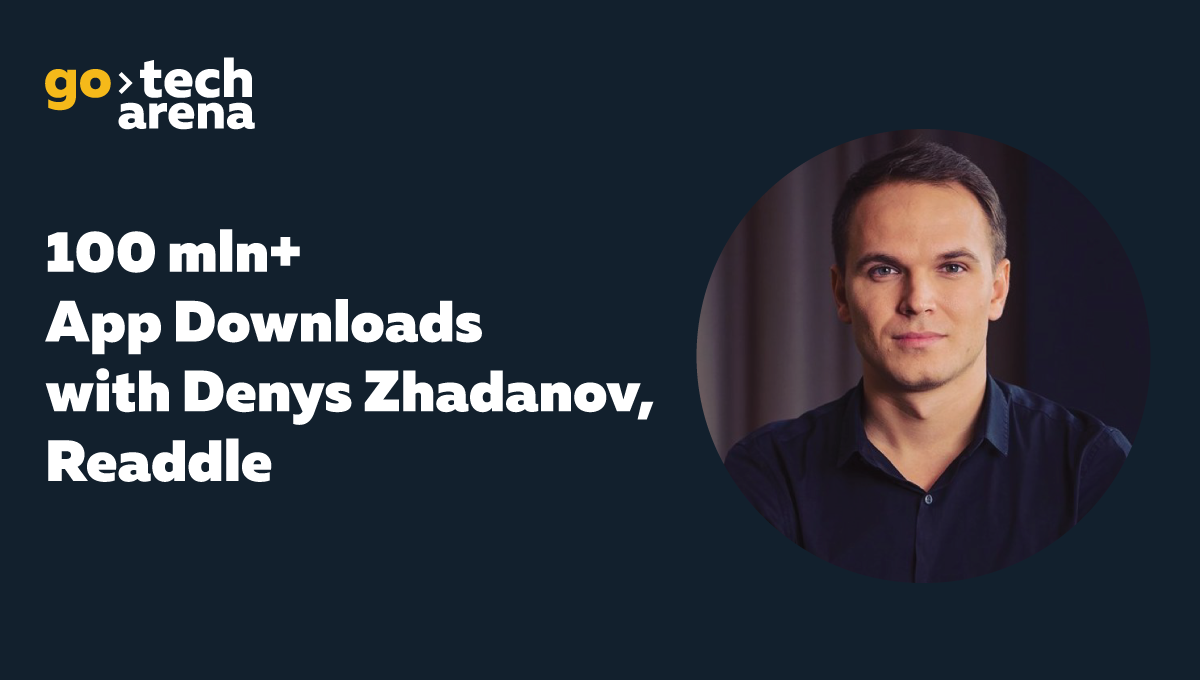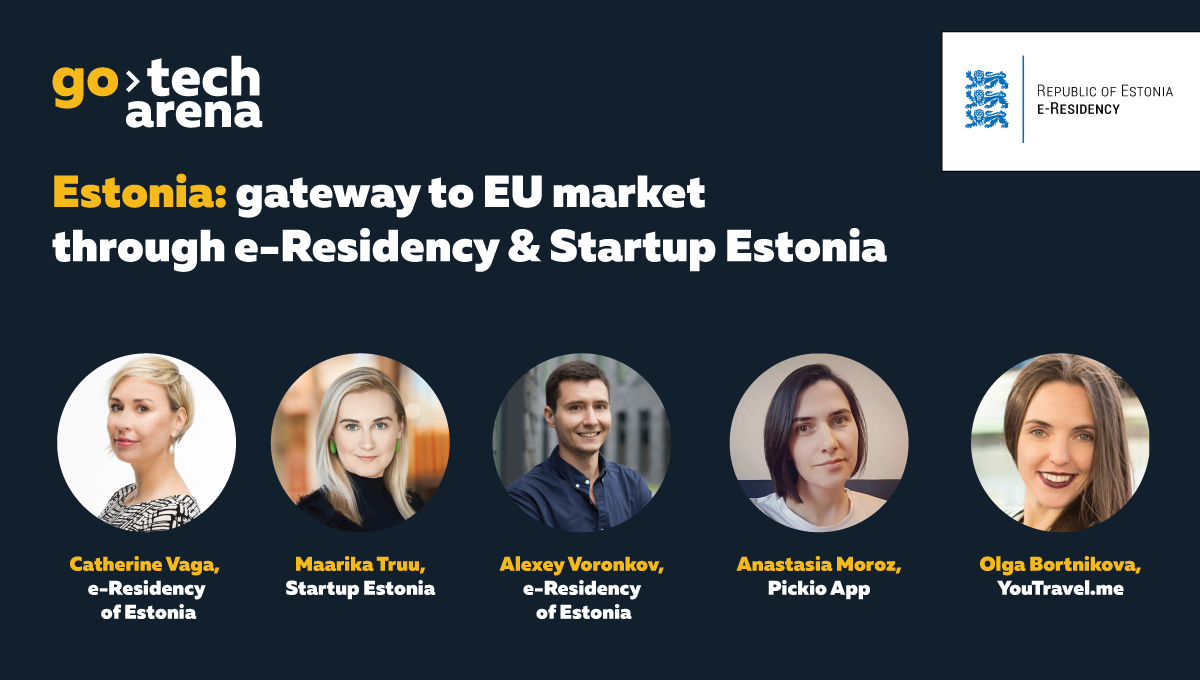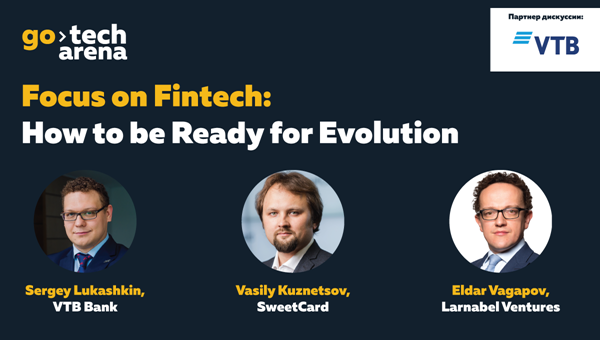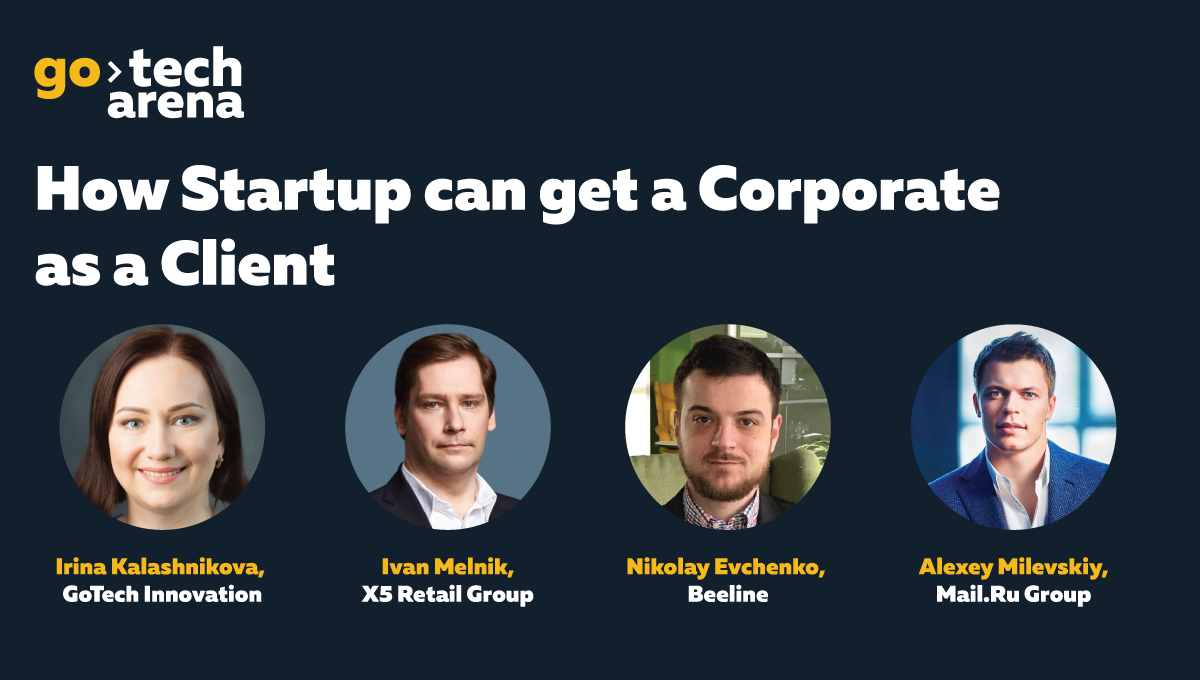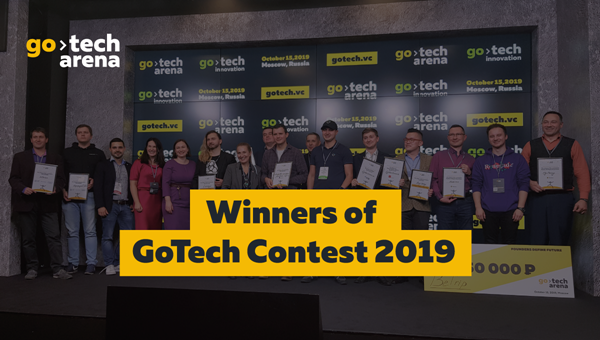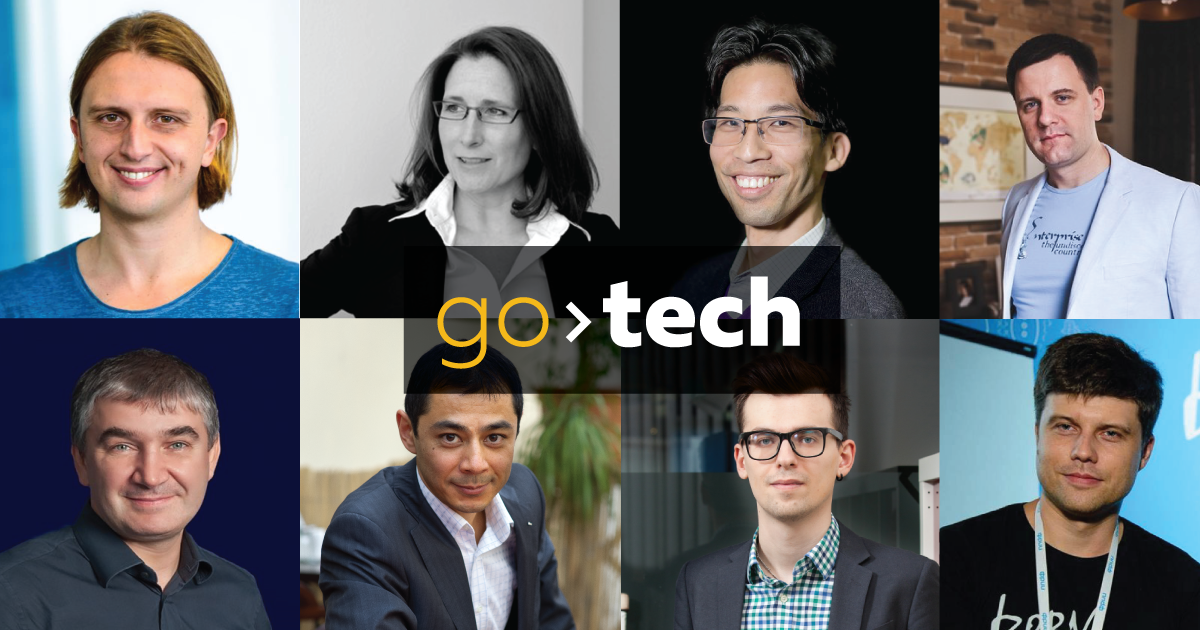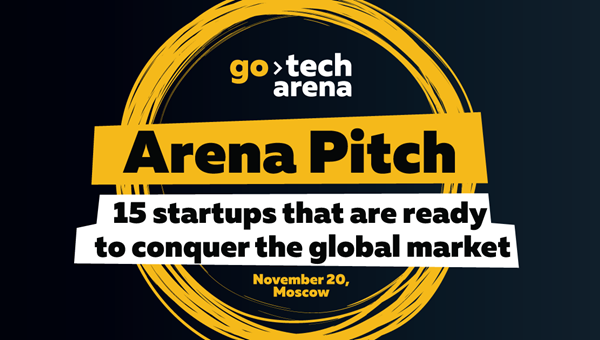12/5/2019
100+ mln downloads with Denys Zhadanov, Readdle
Readdle Vice-President Denys Zhadanov spoke about his business success on GoTech Arena Forum 2019 and shared some tips that have made Readdle apps one of the most popular on the AppStore.

Couple years ago, at Gatwick airport in London the customs officer asked me: “Denys, what is the reason you are coming?”, and I explained that I am coming to the conference to speak about how we do these different apps that save your time, that are great productivity utility apps, such as Scanner Pro, PDF Expert, Spark, Calendars. The officer gets his iPhone out, smiles, shows me our Scanner Pro in his phone and said with his British accent – “Great software, sir! Welcome to Britain!”
I wish I knew another of 125 million people in the world who got our apps and use our products. But today we are not going to talk about how our PDF Expert became the App of the year by Apple and how the major media all over the world featured our products and wrote about us.
Instead I will tell you two interesting stories. First is how it all started, to give you some context, and second is – where it is all going.
Starting point
So, let’s go back to 2007, you all remember how Steve Jobs went to the stage and presented the first iPhone. We were lucky to get this phone very early to Odessa, originally it costs more than $600, and it was a lot of money for us. And what we realized is that this phone is the future, and it’s impossible to read books or view documents on this phone, because there was no AppStore and no apps.
So we decided to make a reading and viewing tool for ourselves and create a service that will allow us to read books. That is why the company is named Readdle.
We made this service and it became really successful early on, within two months 60 000 users started using our service, but we were not making any money and trying to figure out how to make this idea into business. One day we got this magical phone call from Cupertino, California, where Apple Headquarters are. The voice said “We really love what you are doing, and right now we are launching the AppStore, so if you guys want to be there on the first day, you have to make an app to our deadline.”
The next 2 months were horrible, and couple of hours before the deadline we submitted our first app – Readdle Docs, and it went life along with 500 other apps on the AppStore on Day One.
Was this a success – not really, we were making some money, a $1000 per day, which was barely enough to buy couple of iPhones, some MacBooks and pay for some services. Our first success was the app Scanner Pro.
With Scanner Pro we finally turn out that iPhone can be a scanner. This app became a number one hot in Business category in more than 25 countries in 2009. If you go to the AppStore now, at least in the US, this will be in the top 10 paid app all over the world.
And then we had tremendous and fascinating 10 years, we’ve tried a lot of things, we’ve tried games (failed miserably), and overall we’ve created more than 40 products, but only 8 survived up until today.
Right now, we are focusing on the products that help us to save time. For example – Spark is the e-mail client, Calendars helps to organize our life, and document management solutions are there as well.
At the moment we have about 160 people in Odessa, Kiev and Berlin, we shut down our US San-Francisco office for the third time, but that is another story.
I was asked to share what are the principles that we use and what things work for us in terms of marketing and how we managed to create this kind of scale of a business being in a small place, and become a global company.
Media and e-mail marketing
First was the press. This was always free and we managed to get a lot of press early on. All of the biggest media were mentioning us in their reviews; we were getting thousands of installs from one article. Press is phenomenal when you are looking for investors and when you are looking to hire new people. By the way, we didn’t hire PR Agency, and I would not recommend hiring one to startups.
Second was e-mail marketing. This was the best way to communicate with the customers, tell them what’s new and to stay in touch. 16 million people gave us our emails. We never spam and send only very important information, and reply to every single e-mail. Right now, we have a team of 18 people of customer support, per year we are answering more than 150 000 e-mails from our customers. Sometimes these people are so clever and they use our apps in such a different way we never thought it was possible. So now we can create great content, videos, the “How to” articles, educational materials that we distribute and send to people.
Later on, we would go to San-Francisco to different conferences or to Web Summit and TechCrunch and exploit that platform to talk to people.
Speaking of content – we are very good in ASO (AppStore Optimization), basically – optimizing on how people can find you and your products. We try to measure everything, but not from day one, probably for the first five years we didn’t measure enough, but now we do. And of course we also try to build viral tools, especially in Spark e-mails.
The main thing for success: technology/product, marketing or good luck?
I usually underestimate luck and timing. Timing is crucial. We failed so many times here because timing wasn’t right. We have the gift making app back in 2012, when apps were not a mainstream, but the timing was perfect for 2007-2008, because there was a wave of mobile games, and mobile apps, and mobile overall, iPhone was there, so timing was perfect, and then there was just focus on making cool things. Okay, let’s make this, and we had no idea how this will be, big or small, let’s just try it and see how it goes. Right now we cannot afford to do like this, so that was the logic back then. The logic in 2014 was like, okay, we have all these apps, all these products, except Spark, and we can be just a profitable lifestyle company, but there is something inside that just says: “You can build something more, you can build something bigger”. And we look at all these billionaires, in Silicon Valley, who are building SpaceX and Tesla and Apple. That’s where we thought: “Let’s solve one of the biggest problems in tech”. And, email sucks, everybody hates email, so we said: “Okay, let’s try to fix email”. Is it a big ambition? Yes. Is it hard? Yes. Are we there yet? No. It’s been 4 years. Speaking of failures, Spark is definitely not a failure, Spark is one of the best email clients in the world, but it is not yet like a billionaire company. We have a lot of users there and people love it, but it’s still not making money. We are spending money, but that’s just one step ahead of becoming a profitable company. We believe in that.
Offers from the investors
We were in this kind of unique position where we never had to raise the capital, and we are actually profitable. There are no offers from the investors on our table right now, but we have emails coming, probably, every week, people asking if we are investing. You should know why you need the money and how you will use the money to grow and scale. If we believe in something and we know this will work, we will invest our own money. So, this is what’s happening with Spark right now: we've been investing millions in Spark and it's still not making money, but we believe so much in this product, and there is the market, and, for now, there is no need to get another investment. By the way, I have an amazing friend who is an investor. He just closed his new USD 1.2 billion fund, it’s called Bond, and he says: “Denys, you know, investments are like girls: if I see a company that says “No”, I want her more”. So when you are a company and you don’t need money, you create scarcity, you create the story, and then they come to you.
32 fuckups
At least 32 times I felt that I fucked up. Every day you go to sleep and you think you’ve fucked up, because you have this much of a list of to-do, and you’ve done this much, and it keeps piling up. We have a lot of things that didn’t work. I focus on victories, and I focus on a bigger vision. If I can save time an hour per day for a million people or 20 million people, I’ll be happy. Every day is hard, and, especially, if things don’t work, and as you grow you have more and more responsibility, and now you have a lot of people, your team, and now you are not just responsible for yourself, but also for everybody else, and they trust you, they believe you. You cannot just go away, because you have people with you, who are also in this boat. For me, what really worked is escaping the noise. What helped me the most last year, or a year before, was travelling. You can also make, what I did, I made a column of things that drain energy and things that give energy, so I am trying to focus on the things that give me energy. Elon Mask said: “Being an entrepreneur is like chewing glass and looking into the infinity”.
Some keys to success
My good friend says – “Change or die!”, and I truly agree with this statement, we have to change, we have to evolve, and that is why I collected very high-level observation of what is going on in the markets and how I believe we should do things and that is might be useful for you as well.
- Product is the King
We are still trying to go out there and figure out what are we building, what is the value, who is the customer, how much they a going to pay and how we are going to tell the story.
- Personalization
I think we can all make personal connections with our customers; we can all create products that personalize the experience. Just a quick tip – yesterday I was talking to my friends from big company called Ultimate Guitar. They customize user experience during the first 3 screens, where instead of telling the user what the app does; they ask what you would like to do, what are your preferences. Because of that, conversion goes up by 20%.
- Double down on discoverability
We live in a super noisy world: everybody is fighting for the attention. I believe we are living in a world of attention economy. How do we make sure that our product is discovered? One can do the ASO (App store optimization), another can optimize the search, make an amazing channel, or use the celebrities. You just have to know what your channel is. You have to make sure that your product gets visibility by people.
- Word of mouth
We live in a world of trust. It is not about who you know anymore, it is about whom you trust. There is amazing research that says that personal recommendations by people eight times more powerful than advertisements. We tend to believe our friends about 84% of times, but only 8% of people believe the ads from TV or internet. So I believe that in our case only 20-30% of people who got our apps are coming from the word of mouth, personal recommendations. So in the future we have to give people tools to recommend our products.
- Data driven decisions
I just came back from Apple Campus; they are probably the only company in the world that doesn’t do A-B testing. They say – “We believe we are the best users for our technology, and we make our decisions on our principles, on things that we believe”. It is amazing to have this level of confidence, when you are the biggest company in the world, but I think having data is always useful, and looking at every step of the funnel – the acquisition, the impression, the conversion, activation, and turn – is very helpful.
- Scaling pay channels
Pay channels for us never worked, but now we are trying to scale them. Historically our apps were one-time purchase, for example Scanner Pro costs 4 dollars, Apple takes 30% cut. That is why we can’t compete with companies who can spend $20-30 for one user acquisition. But now we are switching to subscription model and I think we will have much higher chances to compete there.
We should have done this before (2 years later), but we couldn’t just switch overnight and say: “Okay, it was a one-time payment, now it’s a subscription, and somehow you have to pay more”. It’s not ethical, and we are very ethical as a company. For example, we made a conscious choice for Documents. My friend tells me: “Denys, if you add just a banner there, in Documents, you will make 3 million dollars a year extra”, and we are consciously making a choice of not doing that, because we don’t do ad-supportive products. We don’t believe in that. We’ll figure out the way to make Documents not make 3 million ads. We will try to make it a 100 million dollars product, somehow else.
So, we just switched PDF expert to subscription, and it took us over a year to figure out what people want more and what people need. There was a lot of customer research and interviews, and making just an app into a bigger service, and going cross-platform and adding value. Some people were really upset. We knew that would happen. So, what we did, we kind of changed the whole spectrum of the product. We made PDF expert free for all, so you can use it for free for most of the cases, and for vertical cases, for professionals, we would create specific tools that are kind of professional. And it’s okay to pay 4 dollars a month, or like 4.99 a month, for something that you use every day. So, that was the first app, and, I think, the rest will follow. And it just takes time to make it the right way.
- Own the channel/customer
We are also trying to know a lot about the customer. So even if in the future one of our products won’t succeed, but we still own the customers, we can figure out what they need and make another product later on.
- Branding and storytelling
This part is my favorite; this is the realization of this year. We have to create a compelling story of who we are, what we do, and the most important is why we do things. WHY is more important than WHAT or HOW.
I want to finish with a quote from Naval Ravikant, founder of AngelList website that gets about 30% of the deals in VC there and now he became a philosopher. He said: “You can escape competition through authenticity. There is nobody better at being you, so figure out what is your story, what drives you, what motivates you and what you are going to do in your life and then be that and be happy”.
You may see the video of Denys Zhadanov pitch at GoTech Arena Forum on the link.
Check aftermovie out: https://youtu.be/oT89Bh4MvzM


